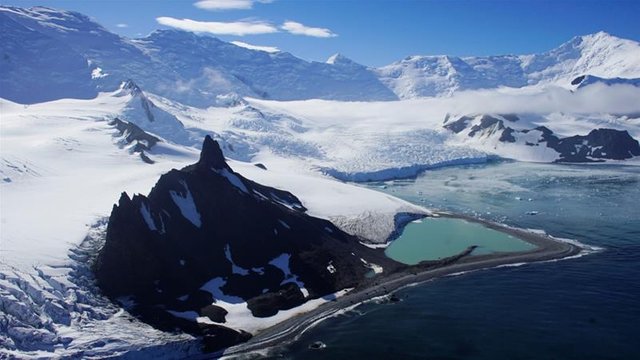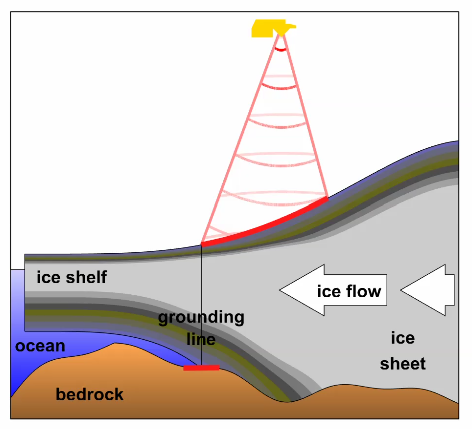Antarctic underwater glaciers melting at an 'extreme' rate
According to the study, 1,463sq km of ice melted between 2010 and 2016, an area slightly smaller than that of London.
Using satellites, researchers tracked about 16,000km of coastline and 65 glaciers [Alexandre Meneghini/Reuters]

Using satellites, researchers tracked about 16,000km of coastline and 65 glaciers [Alexandre Meneghini/Reuters]
Antarctic underwater glaciers are eroding at an alarming rate, with eight of 65 observed glaciers retreating at an "extreme" pace, new research has found.
According to the study, 1,463sq km of ice melted between 2010 and 2016, an area slightly smaller than the Greater London area.
The study found more than 10 percent of Antarctica's coastal glacier are currently retreating more than 25 metres per year.
The results of the research was published in the scientific journal Nature Geoscience on Monday.
Hannes Konrad, lead of the research team at the University of Leeds, said in a statement the evidence shows the glacier retreat is happening on the entire continent.
"Our study provides clear evidence that retreat is happening across the ice sheet due to ocean melting at its base, and not just at the few spots that have been mapped before now," Konrad said.
Ice loss had been especially significant in West Antarctica, where the retreat of the Thwaites Glacier has sped up in the period the research was done.
However, Pine Island Glacier had stopped retreating, despite it being the fastest diminishing glacier up until now.
"These differences emphasise the complex nature of ice sheet instability across the continent, and being able to detect them helps us to pinpoint areas that deserve further investigation," Konrad said.
Methodology
Using satellites, the research team tracked about 16,000km of coastline and 65 glaciers following so-called grounding lines.
These grounding lines are the underwater spots where glaciers touch the sea bottom, usually a kilometre below sea level.
By studying the height of the glacier's surface using the satellites, the researchers could determine how much of the submerged ice had melted.

Via: Centre for Polar Observation and Modelling
One of the main causes for the increased retreat is the warming of sea water because of climate change.
Warmer waters at lower depths have led to the underwater ice sheets melting at a higher rate.
"This retreat has had a huge impact on inland glaciers, because releasing them from the sea bed removes friction, causing them to speed up and contribute to global sea level rise," Konrad said.
Despite the vast majority of the glaciers retreating, a small amount of them have increased in size, with the largest glacier in East Antarctica, the Totten glacier, as the most prominent example.
In total, only 1.9 percent of all Antarctic glaciers were growing at a significant rate.
It is expected that the data gathered for this study will play an important role in the coming years in determining at which rate sea levels will rise over the next decades.
SOURCE: AL JAZEERA NEWS
Link: https://www.aljazeera.com/news/2018/04/antarctic-underwater-glaciers-melting-extreme-rate-180403094040859.html
gud!!